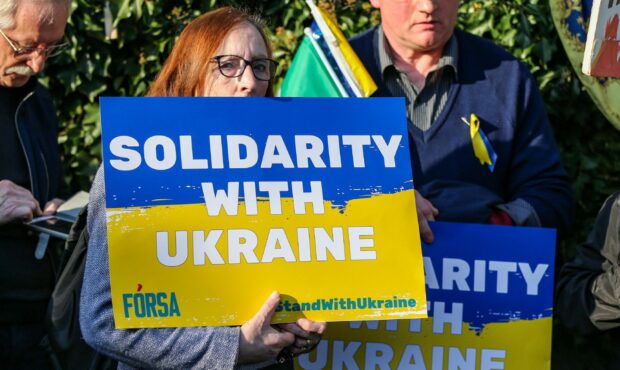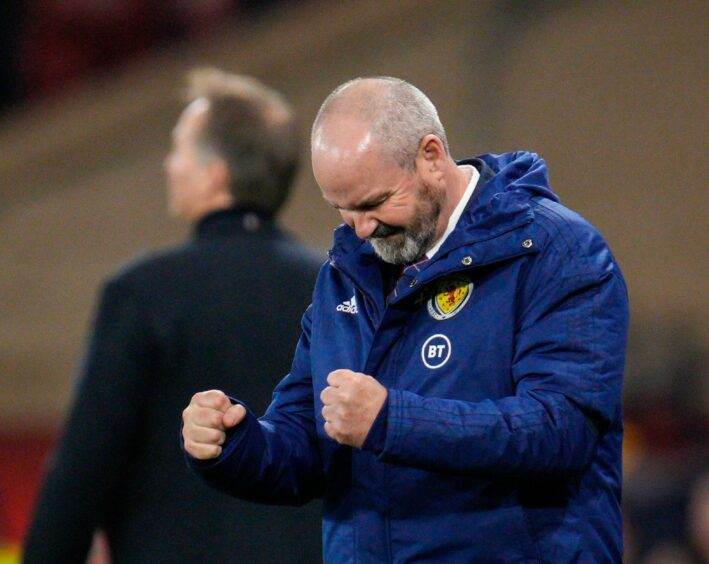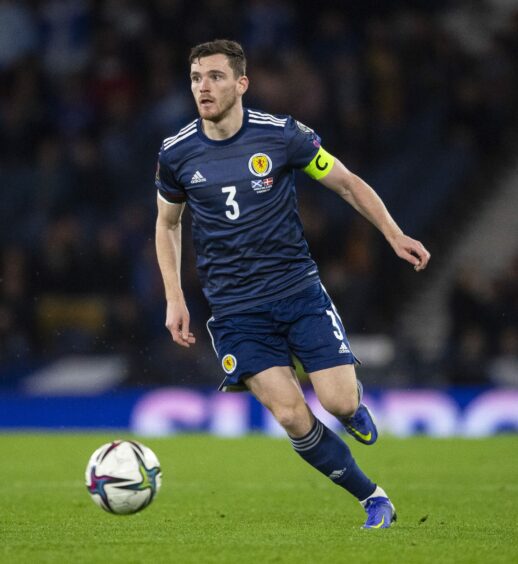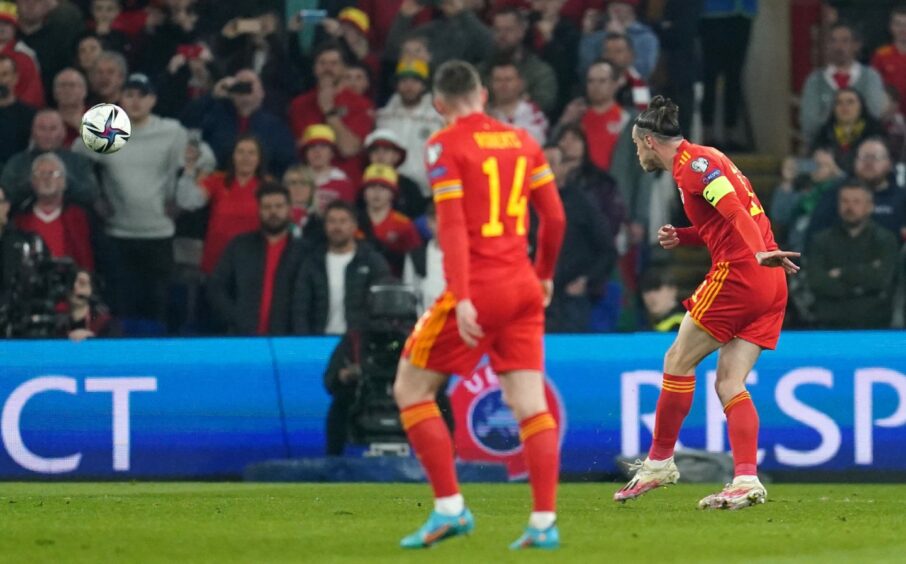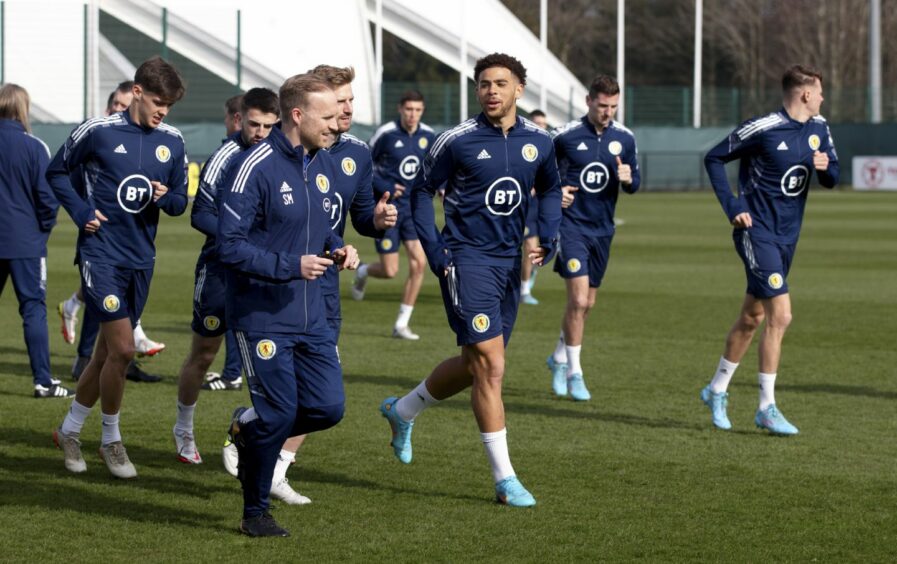Sport has a terrible habit of posturing and procrastinating whenever it becomes entangled in political issues.
The queasy spectacle of teenage skater Kamila Valieva being allowed to continue competing at the Beijing Olympics last month, despite failing a drugs test, and on condition that she wasn’t allowed to appear on any medal podiums at the Games, neatly summed up the imbroglio which generally happens when athletes and affairs of state are intertwined.
And some of the same difficulties have started to arise in the case of Ukraine’s continuing attempts to qualify for the World Cup in Qatar later this year, amid the appalling destruction of their country by Russian forces.
It has even been suggested in some quarters that Scotland and Wales, the two countries who stand in the way of the Ukrainians progressing to the finals, should step aside and allow their rivals free passage to the tournament in November, as a gesture of solidarity with those who have lost their lives and watched their cities being flattened in Kyiv, Lviv, Kharkiv and Mariupol.
In some respects, it’s a compelling idea, but there doesn’t need to be this amount of confusion if world football genuinely wants Ukraine to be present at its global showpiece. Why not just invite them as the 33rd representative and have one group of five teams when the competition is staged? And leave Wales and Scotland to battle it out for the final place in June?
If the organisers try to prattle on about logistical problems, they only need to be pointed towards any TV set with images of hospitals and cinemas being obliterated by Russian forces, and quietly reminded that re-scheduling a few games is a trivial concern in the grand scheme.
And it’s not as if we don’t have a precedent from 30 years ago, which turned into the catalyst for one of the most remarkable stories in sporting history.
In 1992, there were daily reports of war crimes, ethnic cleansing and acts of genocide being perpetrated just a few hours away from Britain in what used to be called the Federal Republic of Yugoslavia.
The situation had grown so dire that international peacekeepers implemented strict sanctions as part of United Nations Security Council Resolution 757. And these included booting out the Yugoslavian football team from the European Championships that summer.
It may have been harsh on the players themselves, who had previously finished at the summit of their qualifying group, but it was the right call. There was no mealy-mouthed equivocation such as we’ve witnessed with the so-called Russian Olympic Committee being allowed to appear at the Olympics in recent years, even though their system is riddled with drugs.
Remarkably, UEFA didn’t dither in swinging the axe. They didn’t have a choice. On the contrary, as soon as the UN sanctions came into force at the end of May, Yugoslavia were out and replaced by Denmark just 10 days before the competition was due to begin.
Danes made pastry of opponents
And, of course, once they had secured their belated ticket to the main event, the Danes not only defeated the defending champions, Holland, in a dramatic penalty shoot-out in the semi-finals, but went all the way to lifting the trophy with a 2-0 victory over the favourites Germany in the final in Gothenburg, spurred to glory by goals from John Jensen and Kim Vilfort.
The tournament was undoubtedly enhanced by the last-minute inclusion of the Scandinavians. In these days, there were only eight participants – a far cry from the manner in which football has become an increasingly bloated, drawn-out spectacle to suit TV audiences and sponsors – and these included Scotland and England, neither of whom overstayed their welcome.
Indeed, while the Scots managed a 3-0 win with goals from Paul McStay, Brian McClair and Gary McAllister against CIS – not the insurance company, but the Commonwealth of Independent States, who were representing the recently-dissolved Soviet Union – their English counterparts could only muster two points in three fixtures against France, Sweden and Denmark.
Not that it really mattered. What was important was that football had taken a decisive stand in responding to the many terrible crimes against humanity by high-ranking figures such as Radovan Karadzic and Slobodan Milosevic.
There would subsequently be protracted war crimes trials and the unearthing of mass graves, accompanied by the sort of harrowing recollections from some of the survivors which were sufficient to chill the blood.
At that stage, it was fondly imagined the Cold War was over, consigned to the dustbin of history, but President Putin’s invasion has disproved that theory. Yet, just as sport joined forces in common revulsion at Yugoslavia’s killing fields from the early 1990s, so there has to be the same kind of resolve today.
The weekend’s friendly contests were marked by admirable solidarity between international football and Ukraine’s besieged, beleaguered masses. The next step should be for FIFA to grant their team an invitation to the World Cup, while the Russians are frozen out of the game for the foreseeable future.
And that is one Cold War that Putin can’t possibly win.
